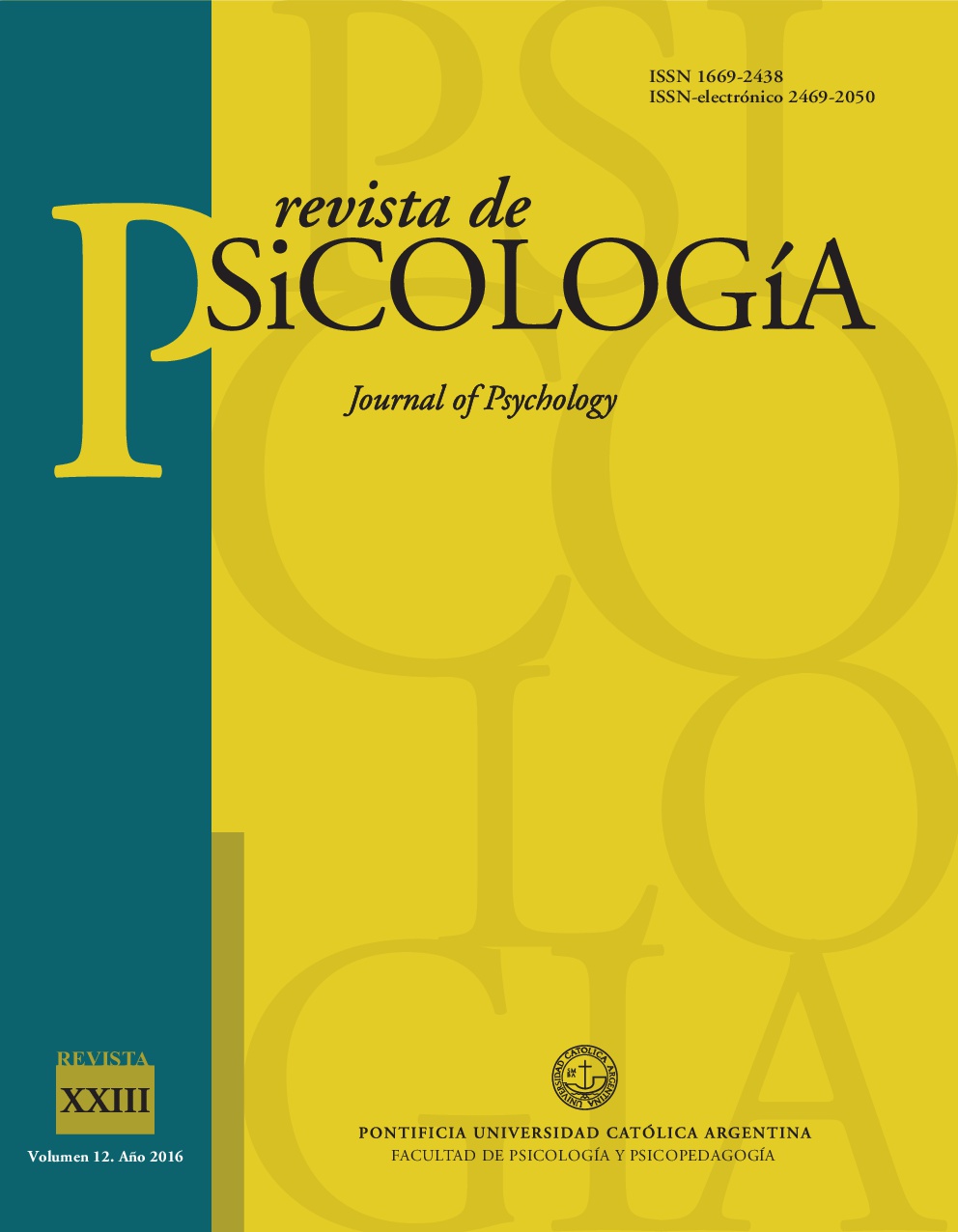A new psychology of reasoning: foundations and applications
Keywords:
reasoning, paradigm, foundations, applicationsAbstract
It has been recently announced the creation of a New Paradigm in psychology of reasoning. The aim of this paper is to present its foundations and applications. Reflections on innovations when compared to the previous paradigm are proposed.
Three bases are considered:1)the use of a new normative logic that includes truth, falseness among other options, 2) the use of new formal resources such as subjective probability for modeling psychological phenomena, and 3) the use of the general theoretical framework of the dual
mind. It is also discussed the potential applications
of the New Paradigm. Finally, some theoretical and experimental advances are mentioned. We conclude that the New Paradigm is a creative model for research practices on deductive reasoning which can be considered as a work in progress.
Downloads
References
Adams, E. W. (1998). A primer of probability logic. Stanford, CA: CSLI Publications.
Baratgin, J., Over, D. E., & Politzer, G. (2013). Uncertainty and the de Finetti tables. Thinking & Reasoning, 19 (3-4), 308-328. DOI: 10.1080/13546783.2013.809018
Bayes, T. (1763). An essay towards solving a problem in the doctrine of chances. Philosophical Transactions of the Royal Society of London, 53, 370-418. DOI: 10.1098/rstl.1763.0053
Bonnefon, J. F. (2013). New ambitions for a new paradigm: Putting the psychology of reasoning at the service of humanity. Thinking & Reasoning, 19 (3-4), 381-398, DOI: 10.1080/13546783.2013.774294
De Finetti, B. (1936/1995). The logic of probability. Foresight: Its logical laws, its subjective sources. En H. J. Kyburg& H. E. Smokler (Eds.), Studies in subjective probability (pp. 55-118). Huntington, NY: Robert E. Krieger.
De Finetti, B. (1970/1974). Theory of probability (Vols. 1 & 2). Chichester, UK: John Wiley & Sons.
Elqayam, S., & Over, D. E. (2013). New paradigm psychology of reasoning: An introduction to the special issue edited by Elqayam,
Bonnefon, and Over. Thinking & Reasoning, 19 (3-4), 249-265. DOI:10.1080/13546783.2013.841591
Evans, J. S. B. T., & Over, D. E (2004). If. Oxford, UK: Oxford University Press.
Evans, J. S. B. T., & Stanovich, K. E. (2013). Dualprocess theories of higher cognition: Advancing the debate. Perspectives on Psychological Science, 8(3), 223-241. DOI: 101177/1745691612460685
Garnier, R., & Taylor, J. (1996). 100% mathematical proof. Chichester, UK: John Wiley & Sons.
Gigerenzer, G., Swijtink, Z., Porter, T., Daston, L., Beatty, J., & Krüger, L. (1989). The empire of chance. Cambridge, MA: Cambridge University Press.
Kahneman, D. (2011). Thinking fast and slow. New York, NY: Farrar, Strauss & Giroux.
Khemlani, S., Orenes, I., & Johnson-Laird, P. N. (2012). Negation: A theory of its meaning, representation, and use. Journal of Cognitive Psychology, 24(5), 541-559. DOI: 10.1080/20445911.2012.660913
Kuhn, T. S. (1970). The structure of scientific revolutions, Second Edition. Chicago, IL: University of Chicago Press.
Kuhn, T. S. (1970). The structure of scientific revolutions, Second Edition. Chicago, IL: University of Chicago Press.
Macbeth, G., Razumiejczyk, E., Crivello, M. C., Fioramonti, M., & Pereyra Girardi, C. I. (2013). The shallow processing of logical negation. Psychology and Behavioral Sciences, 2 (5), 196-201. DOI: 10.11648/j.pbs.20130205.15
Oaksford, M., & Chater, N. (2007). Bayesian rationality. Oxford, UK: Oxford University Press.
Oaksford, M. &Chater, N. (2013). Dynamic inference and everyday conditional reasoning in the new paradigm. Thinking & Reasoning, 19(3-4), 346-379. DOI: 10.1080/13546783.2013.808163
Over, D. E. (2009). Book review: New paradigm psychology of reasoning. Thinking & Reasoning, 15 (4), 431-438. DOI:10.1080/13546780903266188
Pfeifer, N. (2013). The new psychology of reasoning: A mental probability logical perspective. Thinking & Reasoning, 19 (3-4), 329-345. DOI: 10.1080/13546-783.2013.838189
Suppes, P., & Hill, S. (1992). First course in mathematical logic. Mineola, NY: Dover Publications.
Thaler, R., & Sustein, C. S. (2008). Nudge: Improving decisions about health, wealth, and happiness. Yale, CT: Yale University Press.
Thompson, V. A., Evans, J. S. B. T, & Campbell, J. I. D. (2013). Matching bias on the selection task: It´s fast and feels good. Thinking &
Reasoning, 19 (3-4), 431-452. DOI: 10.1080/13546783.2013.820220
Downloads
Published
How to Cite
Issue
Section
License
Copyright (c) 2019 Guillermo Macbeth, Eugenia Razumiejczyk, Carolina Pereyra Girardi

This work is licensed under a Creative Commons Attribution-NonCommercial-ShareAlike 4.0 International License.















